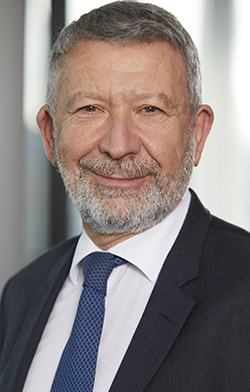
COLOGNE, Aug 31, 2023 - Luc Tytgat has been appointed Acting Executive Director of the European Union Aviation Safety Agency (EASA) with effect from September 1, 2023. Tytgat replaces Patrick Ky, who is leaving the Agency at the expiry of his second 5-year mandate.
Tytgat joined EASA as Director of Strategy and Safety Management in January 2015 after having been responsible for air transport and space domains in the European Commission.
In his role at EASA he successfully increased the level of safety intelligence and developed a better and more agile regulatory framework. He set the strategic direction for key challenges faced by the sector, such as the need to reinforce the Agency’s role in countering climate change and emerging safety risks such as cybersecurity, conflict zones and health. EASA’s research and innovation as well as international cooperation activities also expanded significantly under his guidance.
“I am honoured to be entrusted with leading EASA through this transition period,” Tytgat said. “My task in the coming months is to ensure that the Agency continues to deliver on its many projects and that our operational and reputational position remains intact, so that the new Executive Director can begin the new role at full speed.”
Tytgat will be succeeded as Director of Strategy and Safety Management by Maria Rueda, formerly Managing Director at CAA International (CAAi), who will take up the role from October 1, 2023. Rueda joined the UK CAA’s international cooperation and training arm in 2011 and rose to lead the organisation in 2015. Earlier, she held senior positions at Deloitte and had been Business Development Director at George Best Belfast City Airport.
Patrick Ky’s tenure
As Executive Director, Ky led the Agency through the second half of its 20-year history.
His primary objectives for the Agency were simplification and innovation. This led to a faster and more efficient rule-making process, that retained its robustness but was also aligned with the needs of different aviation communities. This also allowed industry to innovate at a faster pace.
“I am proud of my legacy,” Ky said. “EASA is now a worldwide reference point for aviation safety. We have been consistently on the forefront of innovation and have simplified and adapted our rules to meet the needs of the entire aviation industry.”
Roadmaps were established for General Aviation, to recognise the different risk profile of these operations, and for Rotorcraft, to tackle the root causes of accidents and make these operations safer. In recent years, the Agency has repeatedly been first in the world to publish regulations and guidance on drones and air taxis.
The Agency’s international footprint also grew substantially under Ky’s leadership.
Ky steered the Agency successfully through a series of crises, including the tragic accidents of MH-17, Germanwings and the Boeing 737-MAX. More recently, he took decisive action to restart aviation during the COVID pandemic by agreeing the Aviation Health Safety Protocol together with its sister agency the European Centre for Disease Prevention and Control.
The process to appoint a permanent successor for Patrick Ky is in progress, under the auspices of the European Commission.
About European Union Aviation Safety Agency - EASA
The European Union Aviation Safety Agency (EASA) is the centrepiece of the European Union's strategy for aviation safety. Our mission is to promote and achieve the highest common standards of safety and environmental protection in civil aviation. Based in Cologne, the Agency employs experts and administrators from all over Europe.
For more information, please contact:
Janet Northcote
Head of Communication
European Union Aviation Safety Agency
Email: communications [at] easa.europa.eu


